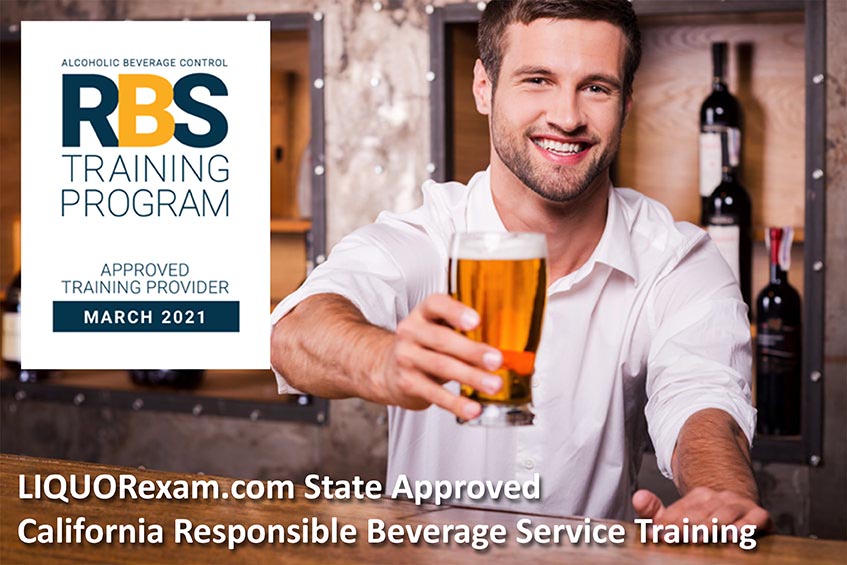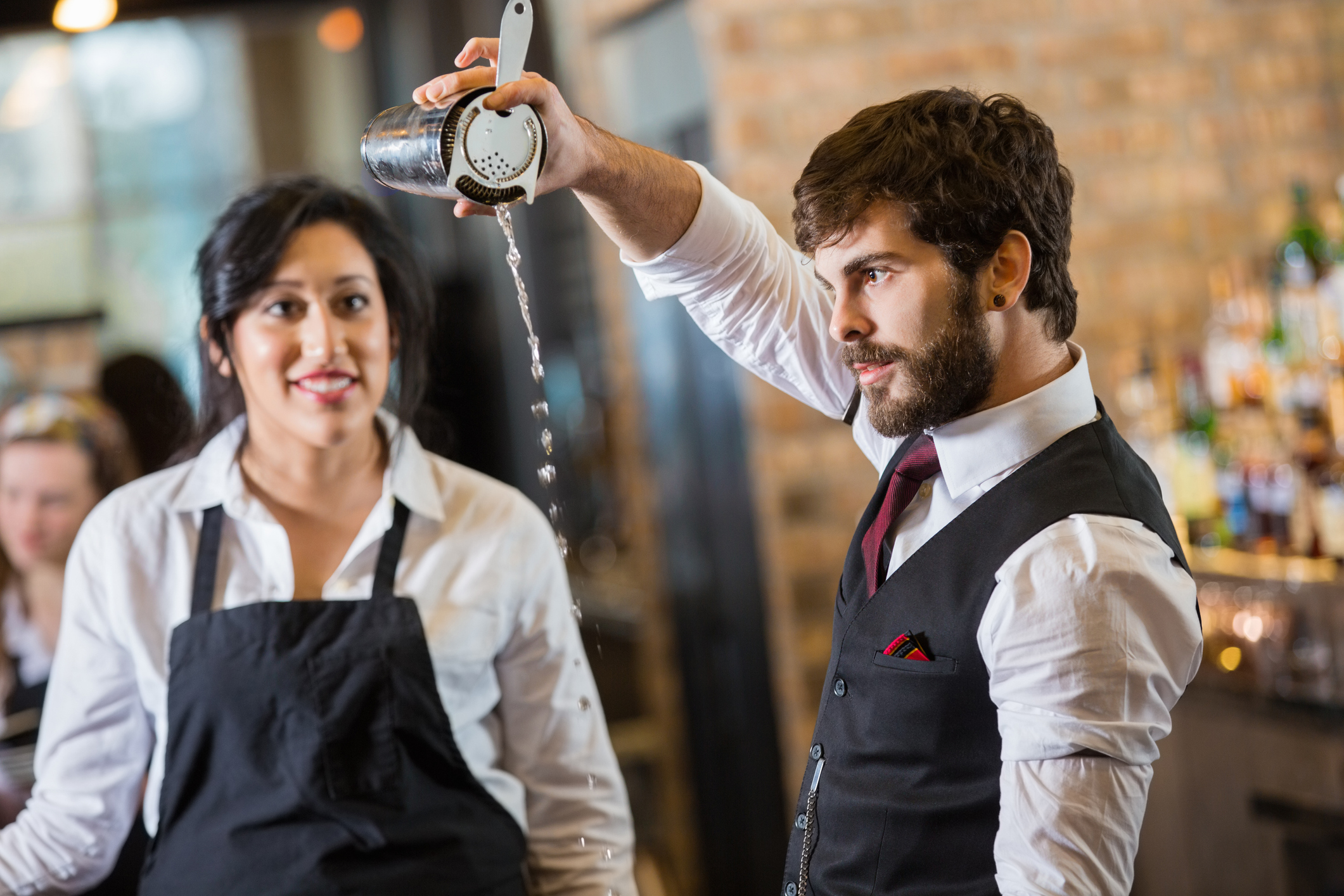Get Your safeserve Training Today and Start Building Your Career in the Food Industry
Get Your safeserve Training Today and Start Building Your Career in the Food Industry
Blog Article
Master Responsible Alcohol Service With Comprehensive Qualification Programs
The proficiency of accountable alcohol solution is not merely a regulative requirement; it is a fundamental component that improves the credibility and operational integrity of facilities within the hospitality industry. Comprehensive certification programs supply important understandings into regional regulations, efficient treatment techniques, and consumer interaction strategies. By buying these training campaigns, services can foster a culture of obligation among their staff, mitigating threats and improving consumer complete satisfaction. Nevertheless, the course to effective execution and its lasting advantages may not be as straightforward as it appears. What difficulties exist in advance for those who look for to boost their solution standards?

Significance of Accountable Alcohol Service
Accountable alcohol solution is vital to advertising public wellness and security in establishments that offer liquors. It incorporates a series of methods created to protect against the overconsumption of alcohol, reduce the threat of alcohol-related harm, and ensure a safe environment for customers and staff alike. By upholding liable service requirements, establishments can alleviate possible cases of drunkenness, which may lead to mishaps, physical violence, or various other negative results.
Furthermore, accountable alcohol service improves the general client experience. In addition, establishments that adhere to liable solution practices frequently experience reduced insurance policy costs and minimized legal obligations.
Furthermore, executing responsible alcohol service practices lines up with more comprehensive public health campaigns focused on lowering compound misuse and advertising area wellness. This proactive method not only protects specific patrons but additionally adds to a much healthier culture. Eventually, liable alcohol solution is not merely a lawful obligation; it stands for a moral dedication to the wellness of clients and the community at large.
Key Components of Certification Programs
Qualification programs for liable alcohol service typically incorporate a number of crucial parts designed to gear up staff with the necessary skills and knowledge to serve alcohol safely. These programs frequently include thorough training on local and state alcohol laws, ensuring that individuals comprehend their lawful responsibilities and the repercussions of failing to conform.
Another crucial part is the identification of indications of intoxication - servsafe food handlers card. Staff are trained to acknowledge behavioral signs indicating when a customer might be over-served, enabling them to intervene properly
Additionally, reliable communication strategies are highlighted, teaching team just how to engage with consumers in a way that advertises liable alcohol consumption. This includes training in conflict resolution methods, permitting staff to deal with tough circumstances smoothly and expertly.
In addition, programs frequently include sensible circumstances and role-playing workouts, providing individuals with real-life instances to exercise their skills. Finally, continuous education and resources are vital for keeping understanding and abilities in time, as guidelines and best methods evolve. Together, these components produce a detailed structure that equips team to foster a safer drinking setting while decreasing liability for facilities.
Advantages for Staff and Facilities
Personnel and establishments alike gain considerable gain from joining responsible alcohol service accreditation programs. For staff, these programs improve expertise and skills connected to alcohol service, outfitting them to determine signs of intoxication and apply reliable intervention strategies. This training not only promotes a feeling of self-confidence amongst workers however likewise promotes a society of safety and security and obligation in the office.
For establishments, buying accreditation programs can result in lowered responsibility and less events connected to over-serving. By guaranteeing that staff are well-trained in accountable service practices, establishments can mitigate risks related to alcohol-related occurrences, consequently securing their online reputation and financial security. Furthermore, several territories supply motivations, such as reduced insurance premiums, for licensed establishments.
Additionally, carrying out qualified methods can boost consumer satisfaction and commitment. Patrons are a lot more likely to go back to venues that prioritize their safety and well-being. Inevitably, a dedication to liable alcohol solution not just cultivates a favorable setting but also boosts the see page overall operational efficiency of facilities, making it a clever financial investment for long-lasting success in the hospitality market.
Typical Difficulties in Alcohol Solution
Ensuring efficient alcohol service is not without its obstacles, even in facilities dedicated to liable techniques. One substantial difficulty is the demand for personnel to properly analyze patrons' alcohol consumption levels. servsafe food handlers card. This calls for a keen understanding of just how different factors, such as food intake, resistance, and specific distinctions, influence intoxication
Additionally, the stress to maximize sales can clash with liable solution protocols. Staff members might deal with troubles in rejecting service to drunk individuals, especially in social environments where peer pressure and expectations prevail.
One more difficulty is remaining updated with regional regulations and guidelines concerning alcohol service. Compliance is crucial, yet constant adjustments in regulation can develop confusion and may result in unintended infractions.
Educating programs might not always cover the nuances of real-world scenarios, leaving team unfit to deal with intricate circumstances. Inconsistent interaction in between administration and employees relating to expectations for liable service can better aggravate these problems.
To navigate these challenges properly, establishments have to foster an environment of support, stressing the significance of responsible service while providing the essential tools and training for staff to be successful.
Steps to Acquire Certification
To get Responsible Alcohol Service Certification, candidates generally start by looking into the certain requirements mandated by their local regulatory authorities. These needs might differ considerably relying on the region, so it is vital to acquaint oneself with the pertinent legislations and policies.

After choosing a program, candidates must finish the requisite training, which normally covers topics such as recognizing intoxication, understanding lawful responsibilities, and executing techniques for look at this now responsible solution. Individuals should actively involve with the material, as this knowledge is essential for reliable alcohol service.

Adhering to training, candidates typically take an additional reading evaluation to examine their understanding of the material. Successful completion of this assessment causes qualification.
Conclusion
Finally, mastering accountable alcohol service through comprehensive qualification programs is necessary for promoting security and enhancing consumer experiences within the hospitality industry. By gearing up team with the essential expertise and abilities, establishments not only mitigate threats connected with overconsumption and legal responsibilities but also cultivate a culture of duty. This dedication to responsible service eventually causes enhanced client commitment and functional success, strengthening the importance of recurring training and adherence to alcohol solution requirements.
Report this page